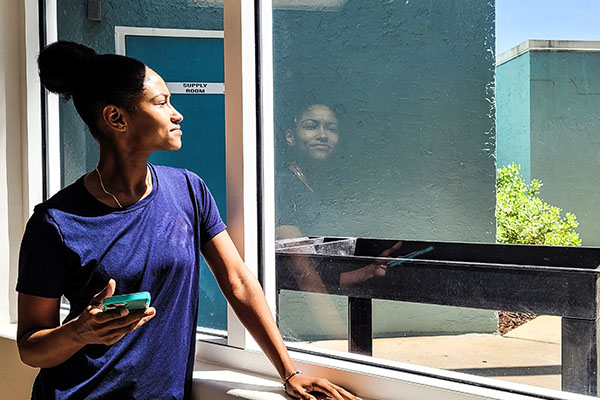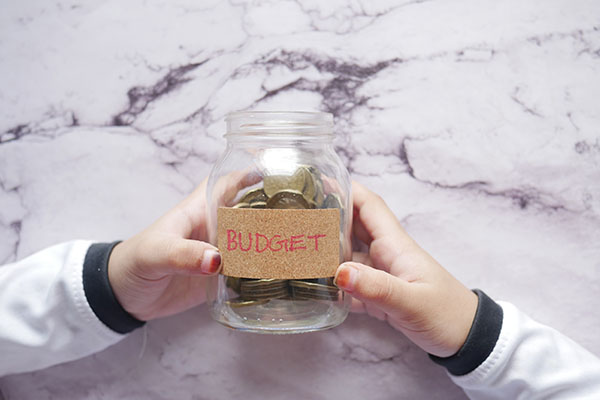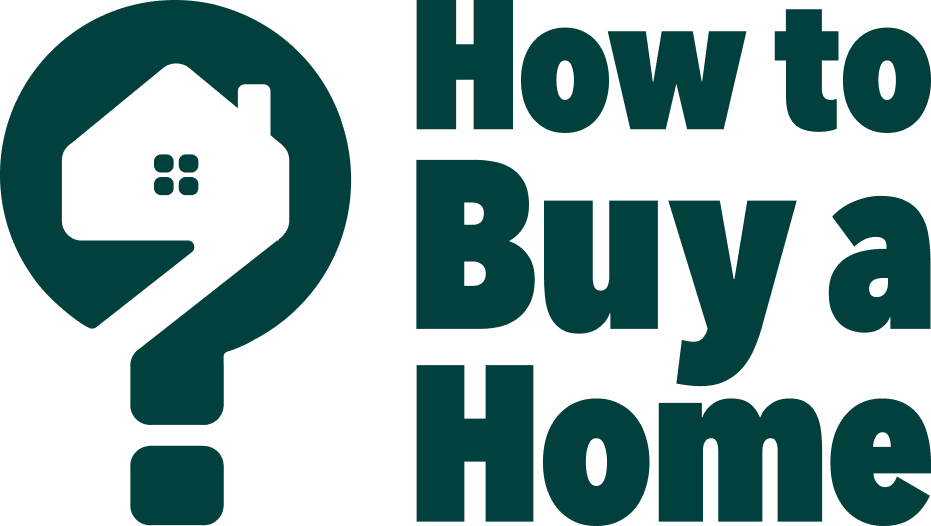
Worried about feeling house-poor after buying your first home? Learn how overcoming mortgage anxiety can help you practice homeownership before taking the plunge, removing anxiety from this life-changing purchase through smart preparation and mindset shifts.
Quote:
“You don’t have to just dream about lavish things that you hope to have someday. We can freaking paint our someday, put it in a spreadsheet, and know exactly when it’s going to happen.”
Highlights:
- What if the dreaded B-word (budget) isn’t about deprivation, but a lifestyle change that lets you indulge guilt-free in your dream purchases?
- Could practicing your future mortgage payment while renting be the secret to never feeling house-poor?
- What if understanding that your home feels most expensive in just the first three years could change your entire perspective?
- How might switching from rising rents to a fixed mortgage payment transform your financial future?
- Could planning future gatherings in your new home – from karaoke nights to holiday parties – motivate you through the buying process?
—
Listen to the podcast here
Stop Fearing Your Future Mortgage – Homebuying 101 – Step 9
Nine out of ten, time to get serious. Fear of taking the plunge is real. We’re going to tackle this with a preemptive strike. Are you ready to learn how to practice becoming a homeowner before you ever even become one, take the fear out of that whole process? Let’s go ahead and remove the anxiety from this life-changing event.
—
Mastering The Budget: A Lifestyle Shift, Not A Sacrifice
What is up, my How to Buy a Homies? I’m super stoked to see that you have made it this far. Welcome to step 9 of the 10 basic steps to dump your rent and start building your financial foundation for life. This step will make it so you never feel house-poor and can confidently know that you made the right move, pun fully intended.
Our topics are going to be the nasty B word again. We’re going to practice to avoid pain. We’re going to understand playing the long game. Finally, we’re going to talk about a house party, and you’re the DJ. Since you’ve been following all the steps in order, here on step nine, you should be living a new financial lifestyle by now. You’re working on that budget toward what you’re going to need for a down payment and your closing costs.
I know I brought up the B word again, budget. Remember, budgets are there not to deprive you. Instead, it’s a lifestyle change and a mindset shift so that you can instead indulge guilt-free in all the things that you once thought were unattainable. Since you’ve already been practicing working on a budget, by the time you own a home, that practice, you’re going to be perfect at it.
I’ve had several clients, especially the people who plan for 6 months, 1 year, or 2 years, that eventually, as they got used to that whole automated savings, they didn’t feel any major shifts in their quality of life. Here’s where the practice helped them for after they closed on the home. They said it was fine. The automated savings? Part of their life now. A lot of them continued that same budget, that same automated saving, after they purchased their first home.

Some of them didn’t do the whole thing. Some of them reduced it down all the way to just 25% of what they were saving before, enough to have a little bit of a cushion. Some reduced it by half, 50%. Some psychos stayed exactly on the same saving budget, saving the full amount that they were saving when they were trying to get ready to get a down payment and their closing costs.
It’s true. What they said to me was, “Once we realized that to save that big chunk of money each month, all we had to do was stop going out so much, or stop buying random things off of TikTok that we don’t need, or diversify our savings planning, putting a little less over here and a little more over here, we’d realized that we’d rather budget a little bit and go on a badass vacation next year instead of all those little things we used to do throughout the month.”
They now told us that they understood what it was like to have a big goal and to shoot for that. It was cool because some of them told us, “We figured out we don’t have to just dream about lavish things that we hope to have someday. We can freaking pick our someday, put it in a spreadsheet, and know exactly when it’s going to happen by just making a few sacrifices.” For many of them, it didn’t hurt that much, especially when they considered the fact that the gift they could give themselves, like lying on a beach somewhere or traveling someplace exotic they always wanted to go to, they could pay for in cash and not on a credit card.
Some of those readers had different ideas as well. They were keeping the budget and saving, whether it was 100%, 50%, or just 25% of what they were doing before in the house-saving budget plan so they could do plan A or plan B, like we talked about before. It doesn’t have to be necessarily, “We’re saving for the next house to buy.” It could be saving for a new car, a new pet, or new toys, kids, vacations, school tuitions, or they could go all HGTV crazy and remodel the whole house.
It’s up to you. You have a new skillset you’ve learned during this saving-up period. Use it. I’m not kidding. You can do anything. Buy a boat, go to Vegas, fishing trips, retire early, go to New York City and see a bunch of Broadway shows. Buy an investment property and get all Monopoly in real life, building all those little green houses up to a big red hotel. You can also go to every Disney theme park in the entire world. We did have a client that did that.
As long as you have the budget word in place, you can achieve a better life.
You can also put it away and let it sit there so you can open your bank account on your phone and look at those big, fat numbers anytime you want to make you feel safe. You can also do that while you’re sitting in the house that you own. That, my friends, is baller. Remember the other B word, budgeting. It’s not scary. I want you to think about being a baller, that good B word, or think about the real B word that happens from the security of owning a home. It’s better. As long as you have the budget word in place, you can achieve a better life.
How Practicing Your Mortgage Payment Can Help
On to the next topic because it’s a big action step that I highly recommend each and every one of you look into. Especially for those of you thinking, “I get it. I hear you on the budget. Our new mortgage payment is going to be way higher than our rent. For us, at least for a little while, any extra that we have, that’s going to be going towards that new payment. We’re okay with that because we understand it’s a forced savings account that we’ve got here with our home.” Cool. This one is definitely for you.
Before you start making that mortgage payment, while you’re saving up, practice. Here’s what I mean. When you’re working with a full Unicorn support team well ahead of time, you’re going to have all your numbers, which means before you start paying that new payment to a mortgage company, I encourage you to start practicing that payment. Do it even a year ahead of time if you can. It’s a simple process, and it just builds up your savings.
While you’re still renting, talk to the unicorn lender, get a guesstimate on the monthly PITI, your principal, interest, taxes, and insurance, on the number that you’re approved for. Talk to your realtor to figure out what those homes are. They are pretty much the homes you want to buy. You’ve got your monthly number. At the end of the month, you pay your rent, and then you pay whatever the difference is to the new mortgage payment that you got figured out, and you put it right in your savings account.
That savings account is going to grow for your down payment and your closing costs. You’re going to practice paying your mortgage payment. That kills two birds with one stone. You practice while you’re building savings. It’s a great trick, and I am shocked that more realtors and lenders don’t encourage would-be home buyers to do this. Here’s a little caveat on this, don’t be bummed out if you can’t hit the number right away. Do as much as you can, and then retweak it next month and keep practicing until you hit it. It’s seriously not any more complicated than that.

Practice the new payment. I wish I could dress it up and make it sound more earth-shattering than it is, but it’s simple, and it’s something everybody should do. I’m shocked at how few people do this. Take it from feedback I’ve got from those who did this. What I’ve heard over and over again from people is by doing this practice technique, it meant that by the time they got in the home, they never felt house-poor. Take it from me and the bummer emails I get when people don’t practice. They’re the ones who end up feeling that pain of regret. To avoid that, it’s simple. Practice the payment.
The Financial Struggles Of The First Three Years
The next topic here in the practice episode, this one can get a little mathy. It involves some spreadsheets and equations. If you haven’t done this yet, this is something that I recommend you do. It’s a huge help when you have moments of longing for the easy life of a renter. Here’s this fact. Your home and paying for your home will never feel more expensive than it does in the first three years. You have to enter the home-buying process understanding, comprehending, and knowing that fact.
Think about it, because mathematically, it’s going to be the most expensive right when you move in because you haven’t paid down any of the principal. The mortgage is also going to feel the highest it ever does, but it’s going to get easier because it’s fixed, unlike rising annual rents. The rising rents, that’s over now. You know how much that’s been a pinch on your budget for the last 2, 3, 10, or 12 years you’ve been renting. Think about what’s going to happen as you’re living with that fixed income.
It’s going to likely be right in line with all of your increases in income that you have in the coming years. It’s always going to be easier in the future. This means the gap between your money in and your money out, which is leftovers, the money that you can save, that gap is going to be the smallest in these first three years of homeownership. You’re going to have the smallest surplus. That’s what’s going to make you feel a financial pinch.
Sometimes, you might even feel like you’re living paycheck to paycheck with no light at the end of the tunnel, but remember, each year that you own and your monthly housing expense, that’s going to remain fixed on the mortgage. The larger that saving gap gets, because you’re going to have the potential to be making more money. Your shelter payment, unlike your rent, is not moving anywhere.
We don’t understand that the mundane and sometimes even tedious practices done today will end up making us a more comfortable and easier life in the future.
That reminds me of an old Italian proverb about owning a home. What pasta is always getting locked out of the house? Gnocchi. Dad joke. Seriously, in this world, we tend to live so in the now that, with thinking completely about immediate gratification, that ends up running our entire psyche. Sometimes, we can’t take a moment to laugh at a stupid joke, or we can’t see the forest for the trees. We don’t understand that the mundane, sometimes even tedious practices done now will end up making a more comfortable, easier life in the future.
There’s a thought that if we’re not living our best life ever, we’re failing somehow. In many ways, if you live a balanced life, even now, while you’re living your best life ever, then the long game can become much clearer and much more exciting. Sometimes, just putting a spreadsheet in writing or writing it out can create a visual for you that helps ease your mind. It gets your psyche to see the best life and that it’s happening now, even though you might be paying a little more than you’re used to. Your even better life, that’s ahead of you as things get easier.
Turning Your Home Into A Social Hub (Or Your Personal Sanctuary)
A final topic for now is, you got the house, use it. This is a little teaser for what to do for when you get the home. It never hurts to give yourself a little motivation besides just looking at the spreadsheets and the numbers. As you get closer to owning the home, start thinking about, start planning, start even researching all the fun things you can do in your new home. You start planning a Friendsgiving, or I’ve seen these all over social media, hosting a random costume party for no reason.
They say, “Come as your favorite video game character, or a literary character, TV, or movie character.” You can start thinking about what kind of dinner parties you want to have, barbecues, game nights, or watch parties for shows. Have happy hour at your house, play dates if you’ve got kids, fire pit jam sessions if you’re musicians, or bongo players that smoke something I’m not allowed to talk about on a show. You can have Monday night football parties, the Super Bowl party, or, for the heck of it, go out and spend $200 on a karaoke machine. You’re now the karaoke club. Whatever you’re into.
You can do the traditional things like having your home be the home that the family travels to for the holidays. How awesome is that? You don’t have to travel. They come to you. Speaking of social media, I saw a bunch of these silly holiday games on TikTok. People get super creative with these games on tables, floors, or in the yard, and they’re games for all ages with prizes. Go look them up. I think most of them are like Christmas or holiday games for the whole family. They’re hysterical. If you don’t like people, awesome. This can be your fortress of solitude, with no apartment neighbors, nobody through the walls.

Doing this research for all the things you’re going to do when you own the home, running these scenarios in your head before you own, is not quite as practical as practicing your mortgage payment, but it can be good for your mental health. Remember, buying a home is stressful, even with the best team. If you’re looking for inspiration, motivation, or partification, that’s a great way to help you relieve some of the home-buying stress.
Step nine, that’ll do a lot for you as well. It’s all about practice. Keep practicing a budget lifestyle. Practice your monthly payments, and get in the practice of seeing the long game, both financially, as well as the fun and exciting ways that your new home can be the place for family and friends or just for you, you big old hermit.
As always, if you’re looking for more details and information for the first-time home-buying process, check out my Instagram at @HowToBuyAHomepodcast, my TikTok at @HowToBuyAHome, or the YouTube channel, How to Buy a Home. There’s plenty there, as well as everything at HowToBuyAHome.com. If you’re getting anything out of these steps, any value from this education, please rate the podcast, or better yet, take one minute and write down a few words in a review.
The reason for that is there are no views, likes, and subscribers on podcasts. The more reviews the podcast gets, the more people can find this so they can get empowered, too. It’s all about the review, so help out if you can. If this has been helpful in any way, it’s all about the reviews. Please take a second. Step nine is now completed, but don’t stop now. Go right to step ten, and let’s wrap this up for you. You can do this.
Important Links
This podcast was started for YOU, to demystify things for first time home buyers, and help crush the confusion. After helping first timers for over 13 years, I knew there wasn’t t a lot of clear, tangible, useable information out there on the internet, so I started this podcast. Help me spread the word to other people just like you, dying for answers. Tell your friends, family, and perhaps that random neighbor you REALLY want to move out about How to Buy a Home! A really easy way is to hit the share button and text it to your friends. Go for it, help someone out. And if you’re not already a regular listener, subscribe and get constant updates on the market. If you are a regular and learned something, help me help others – give the show a quick review in Apple Podcasts or wherever you get your podcasts, or write a review on Spotify. Let’s change the way the real estate industry treats you first time buyers, one buyer at a time, starting with you – and make sure your favorite people don’t get screwed by going into this HUGE step blind and confused. Viva la Unicorn Revolution!
Instagram @DavidSidoni
TikTok @howtobuyahome

